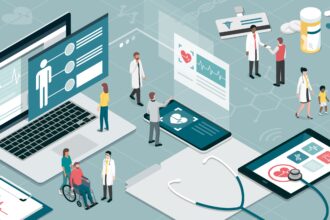In IT speak, “big data” is a term used to describe large and complex data sets that are challenging to work with using the database management tools that are largely available. The difficulties typically include data capture, storage, search, sharing, analysis, and visualization.
In IT speak, “big data” is a term used to describe large and complex data sets that are challenging to work with using the database management tools that are largely available. The difficulties typically include data capture, storage, search, sharing, analysis, and visualization. The trend to larger data sets is due to the additional information derivable from analysis of a single large set of related data, as compared to separate smaller sets with the same total amount of data, allowing correlations to be found to identify trends, assess quality, link and associate information, and support decision making in real-time.
With all of the analysts and executives talking about how this big data will deliver billions (actually, hundreds of billions) of dollars in value to healthcare system, it’s no surprise that so many leading companies in the industry are rapidly moving to big data technologies with hopes to realize the “big” benefits.
Organizations are tapping many new sources of information including claims data, electronic medical records, social media, real world evidence and research, personalized medicine, tracking and monitoring systems, and much more to turn numbers into strategic intelligence that will help improve healthcare quality while reducing costs.
The significant areas of focus where this information promises the greatest potential value includes uncovering unmet needs, managing populations, assessing the feasibility of clinical trial designs and recruiting appropriate trial subjects, demonstrating product value, reacting more quickly to market changes via real-time market measurement and sophisticated KPIs, enhancing commercial activities, enabling more personalized communications and services, and deploying predictive capabilities rather than retrospective analytics.
Three core elements of technology that are required to extract value from big data in healthcare are: 1) collection, aggregation and storage; 2) analytics; and 3) reporting. Each of these elements requires a major investment for organizations to successfully navigate, cultivate and leverage large and complex data sets. Companies must adopt technology strategies and design internal system architectures to support their plans with big data.
The data that is being constantly generated by sensors, monitors, devices and various mobile technologies is creating a massive repository of intelligence and insights that are waiting to be tapped. Technology has quickly become so pervasive that a steady stream of real-time data could someday support human decision making with innovative new solutions that utilize automated algorithms. New solutions in mobile and wireless health will further increase the quantity and quality of data.
The increasing capability of healthcare payers and providers to harness and leverage big data will fuel the development of new technologies for sensing, analyzing, reasoning and supporting decisions. The recent attention to big data in healthcare is a good thing. This attention will undoubtedly increase the industry’s technology aptitude and create many new opportunities for increasing the efficiency and efficacy of healthcare.
Let us know what you think.
John Montague





